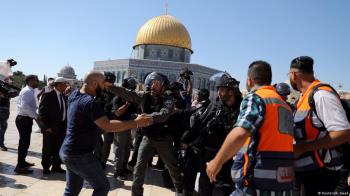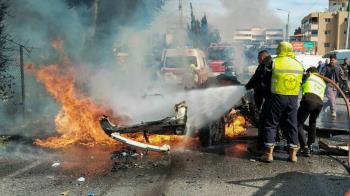Alwaght- Forty years ago, Turkish army occupied Cyprus in support of the Turks living in Cyprus. The aggression was inspired by racism against the Turkish people in the southern part which left casualties from both sides. During this time, attempts made by legal and political organizations, including the UN, European countries and even Kofi Annan's initiative to join the two parts together and create a federal government proved inconclusive.
In all these years, despite the government change in both the Greek and Turkish Cyprus, the political issue still remains unresolved.
In recent years, there were negotiations between Anastasiades government in Southern Cyprus and Dervish Eroğlu government in Northern Cyprus, on issues such as the problem of territorial arbitration on both sides, and Turks leaving the northern part to increase their population. However, no results were achieved on division of political power in a parliamentary structure.
Over 36 years since the establishment of the Turkish Republic, public infrastructure in Turkish part of the island has been transformed in such a way that it is not possible to ignore the governance of Northern Cyprus. Therefore, the only solution for the negotiating parties and representatives of the United Nations is to form a federal government.
Election results show that the people of Northern Cyprus are on the path to independence and distancing from the governance of Republic of Turkey in the process of socio-political and economic changes.
Despite the lifting of a ban on entering and leaving for the indigenous citizens of Northern and Southern Cyprus in both parts, the issue of land ownership raised during the Turkish occupation still remains unresolved, but it has had a positive role in strengthening the relations between the people on both parts of Cyprus. Close relationships and both sides’ needs to one another, made the negotiations develop a continuous flow in all these years. However, the main issues are territorial sovereignty and Turkey’s involvement in all areas of dispute.
For Turkey, Northern Cyprus served as its own backyard and at the same time a strategic area in the Mediterranean, by which Turkey can flaunt its power to countries in the Horn of Africa, the West Asia and even South-Eastern Europe, it also helps Turkey to deal with many irregular economic issues.
Above all, the region can serve as a platform for rapid response in the regional developments, especially in the Mediterranean and southeastern Turkey. Therefore, the Turkish military and security ruling in Cyprus has been inevitable and that’s why it has been involved for many years in political destiny of Northern Cyprus and has been a key player in the development process forward in Cyprus.
Over the past years, Northern Cyprus has turned to a country without any political, economic and military capabilities whose major part of funding comes from the Turkish government. This made the new generation of Cyprus react against Turkey, the election held three weeks ago was a sign of it.
On April 19, 2015 presidential election in Northern Cyprus began with several candidates; the main rivals were Dervish Eroğlu, the former President; Mrs Sibel Siber, the President of Parliament, and Mustafa Akinci, an independent candidate. At this stage, Mr. Eroğlu and Akinci progressed to the second round. Eventually, on 26 April 2015 Eroğlu won more than 60% of the vote and was elected president with a large margin.
The autopsy of the results is very important in terms of politics. As Akinci’s victory is important for two reasons: First, his amazing victory at this stage suggests that the people of Northern Cyprus have taken the path to independence, and getting away from the Republic of Turkey in the process of socio-political and economic changes. In this election they showed that they are not interested in continued Turkish support any more, and somehow called for unification of Cyprus as a federal government. This was also mentioned several times during election campaigns conducted by Akinci.
The West seems willing to resolve the tensions in the region and establish a strong policy, as the religious extremism of ISIS in the region makes them pay special attention to the West Asia. Turkey’s support for anti-Syrian groups, double standard towards the US, outbreak of tensions with Israeli regime, and interference in Iraq issues made Western politicians change their view about Turkey.
Turkish officials dissatisfied with the election results, did not congratulated Akinci in the early hours. It is too early to be optimistic about result of these changes, as Northern Cyprus is heavily dependent on Turkey for military, security and economic support.


























